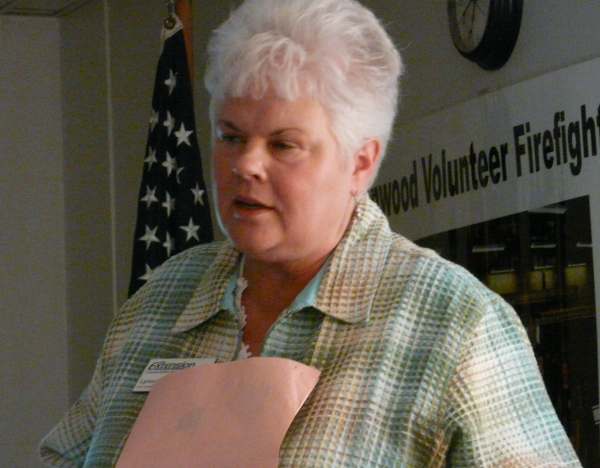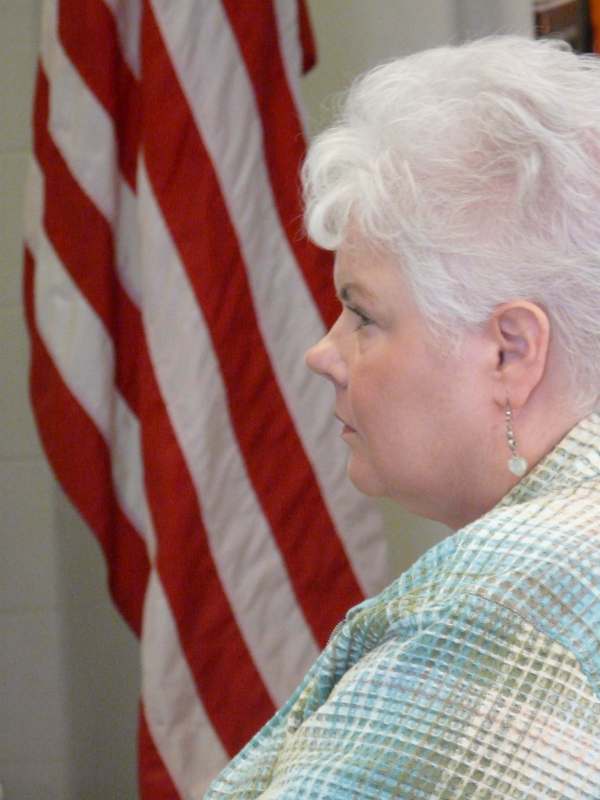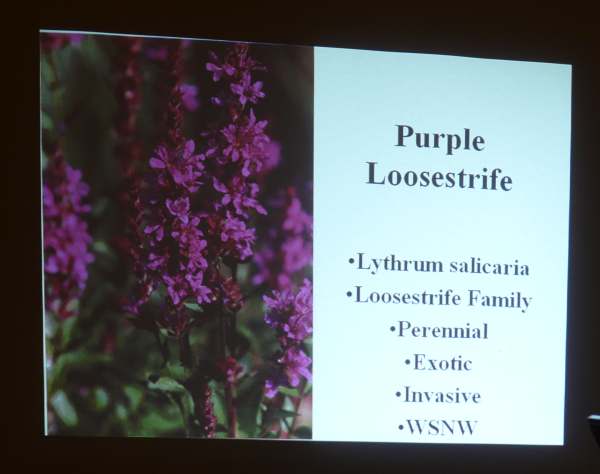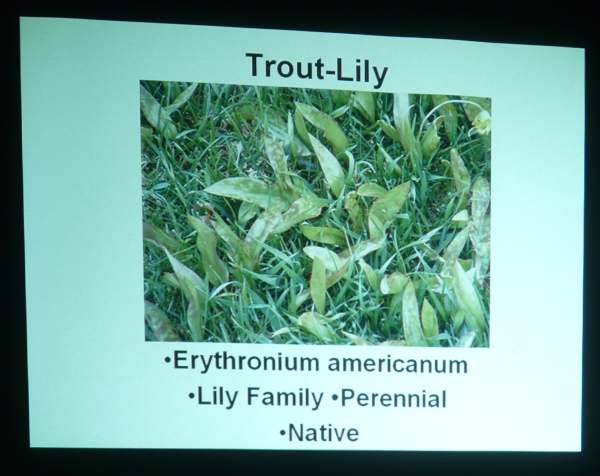|
Giving Weeds
The Boot |
 |
| Ironwood - April 12, 2009
This past Thursday evening,
Range Master Gardener, Lynn Adams addressed the
members of the 46th Parallel Planters on the issue
of invasive plants.
Lynn described many of the
invasive weeds that find their way into our lawns
and gardens. Many of these invasive plants were
brought to our shores from Europe and Asia. Many
of these invasive plants are native to our
hemisphere.
Today, some invasive plants
such as Japanese Barberry are still being sold in
Michigan stores and through catalogs. Several
states protect their borders from problem plants.
Unfortunately Michigan isn't one of them. Lynn
didn't say that, but I will! |
 |
| In addition to her great Power Point
presentation, Lynn brought along samples of the
little villains we might find about our yards.
Recognize any of these ? Unfortunately , I do. |
 |
| Lynn, is a Michigan Master
Gardener and a Wisconsin Master Gardener. She is
the Horticultural contact at the Wisconsin
Extension Office. If you have ay kind of garden
questions Lynn is the person to contact. In the
very, very remote chance that she can't answer
your question right away, she has some high
powered help in Madison who can. If your
interested in becoming a Master Gardener, Lynn is
also the person to see. |
 |
| above - Lynn's slide on Purple Loosestrife.
This is very beautiful plant that we growing along
roadsides. Not withstanding its beauty this plant
is a major, major problem. It currently is causing
havoc in over half the states in our country. It's
everywhere and it's a menace. |
| Weeds rob moisture and nutrients from your
garden plants. Your lawn and garden plants will
not receive what they need to thrive in the
presence of weeds. The more aggressive or invasive
the weed is the greater the damage to your garden.
|
 |
| above - the common Trout-Lilly which can be
found in most lawns. |
|
|
| above - the very dangerous Giant Hogweed. This
plant has been found in Iron and Gogebic Counties.
It is often confused with Wild Parsnip and Queen
Anne's Lace. If you come across this plant do not
touch it! Call the DNR or the Extension Office.
you can find out much more about this plant at
http://rangemastergardeners.org/hogweed.html |
| The next time Lynn offers this valuable
presentation try to attend as it will be well
worth your time. |